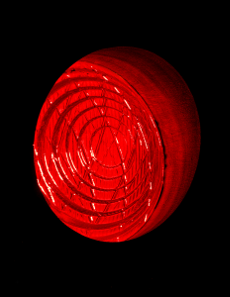Inquiry slams Sydney road
 A parliamentary inquiry has condemned the traffic chaos caused by the $3.9 billion Rozelle interchange in NSW.
A parliamentary inquiry has condemned the traffic chaos caused by the $3.9 billion Rozelle interchange in NSW.
The inquiry found the traffic chaos caused by the interchange works to be “unreasonable and unacceptable”, criticising both the New South Wales government and the toll road operator, Transurban, for a “concerning lack of clarity and transparency”.
The Rozelle interchange, which forms the final stage of the $16.8 billion WestConnex toll road network, was intended to alleviate traffic but has instead created severe congestion since its opening in November 2023.
Designed and built by the NSW government and operated by Transurban, the interchange has been described as a “spaghetti junction”, leading to significant commuter disruptions in Sydney's inner west.
The inquiry found that the WestConnex model prioritised maximising its sale value, resulting in increased traffic congestion, particularly on the Anzac Bridge and surrounding suburbs.
The report highlighted a lack of transparency and accountability in the design and implementation phases, noting that the promised benefits to the community had not been realised.
Committee chair, Greens MP Cate Faehrmann, said the state government should learn from the project’s failures.
“Local communities have endured increased traffic congestion, rat running, unsuitable and at times unusable active transport options, negative impacts on local business, and increased road safety risks,” she said.
“The committee believes that the NSW government must reflect on the lessons learnt from the experience of the Rozelle Interchange and take action to prevent similar outcomes from reoccurring in the future.”
The committee's report (PDF) includes 17 recommendations aimed at addressing the issues.
Among these are calls for Transport for NSW to review various design elements of the interchange and surrounding roads, and to revise its traffic modelling methods.
Additionally, the report urged the government to prioritise measures to stop rat-running on local roads.
NSW Roads Minister John Graham had previously claimed that traffic in the area would stabilise within six months.
However, Premier Chris Minns says he is disturbed by the previous government’s awareness of the potential disruptions and their failure to adequately consult with the community.
“That’s a learning for us, as it is as much for the previous government,” Minns said.
“We’re determined when we pursue major changes, that the public are aware of how it will affect their community and we also take into consideration whether there’s better ways of providing this public infrastructure.”
Former Roads Minister Natalie Ward, representing the Coalition, provided a dissenting view, acknowledging the initial “unacceptable impacts” but arguing that the WestConnex project had overall been transformative for Sydney's road network.
“As a global city, Sydney will continue to grow and responsible governments must continue to invest in the critical road and public transport infrastructure to keep pace with the population,” she said.
Transurban acknowledged the congestion issues and the frustration caused to the local community but highlighted the interchange's benefits for some motorists.
“Rozelle Interchange is a crucial component of WestConnex and has delivered substantial time-savings for motorists from Western Sydney,” a spokesperson said, noting improved travel times from Penrith, Liverpool, and Parramatta to the city.
The inquiry's findings have sparked a broader discussion about the future of road privatisation in NSW, with recommendations for the government to reject further privatisation of state roads and to enhance community consultation and accountability in major infrastructure projects.








 Print
Print